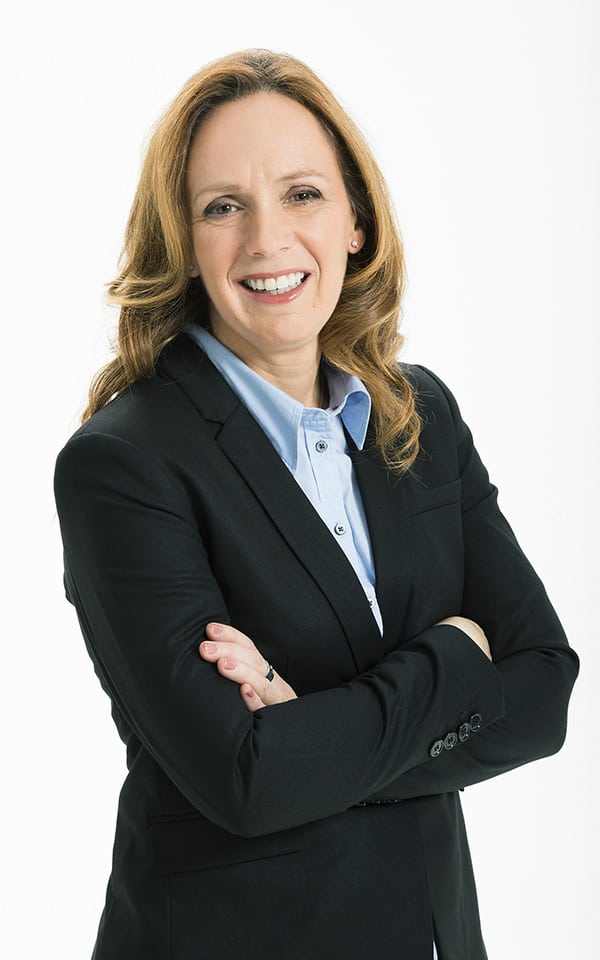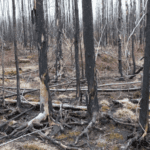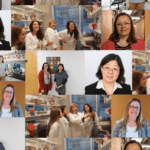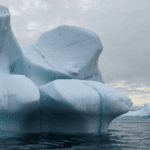Dr. Line Rochefort doesn’t watch TV. She doesn’t have time for it amongst the three most important things in her life: career, family, and sports.
Rochefort is a world-renowned expert in peatland ecology and management who founded the Peatland Ecology Research Group (PERG) at Université Laval in 1993, and has held an NSERC Industrial Research Chair in Peatland Management – also at Laval – since 2003. She completed a BSc in biology at Université Laval, and an MSc in botany at the University of Alberta. For the latter, she worked at the famous Experimental Lakes Area as part of a whole-ecosystem experiment studying acid rain impacts.

Image: Cercel Des Ambassadeurs De Quebec
Following her MSc, Rochefort attended the University of Cambridge for a PhD in Botany, including a stint at Harvard University. She chose her PhD topic based on her (now ex-) husband’s location, though some days she wishes she’d done something closer to her research interests. Rochefort was fortunate to be hired at Laval prior to completing her PhD, and became an assistant professor immediately upon completing her PhD defence in 1992.
As a child growing up in a small town near Chicoutimi, Rochefort decided in grade six that she wanted to be a biologist after seeing a movie in class about a frog dissection. As a teenager, she did a lot of bird watching and plant collection – interests that were piqued by Pierre Morency’s Radio-Canada series: Le Bestiaire de l’été, as well as by W.E. Godfrey’s Birds of Canada, published by the National Museum of Canada, and plant guides from the Québec-based publisher Fleurbec.
But if you thought Rochefort was all about peat, think again. Her second and third passions (family and sports) combine in the world of freestyle skiing. Rochefort is a passionate out-of-bounds skier who heads to the hills 50-60 times a year, and next month will be skiing in Italy’s Dolomites. She’s also the mother of two provincial/national level mogul skiers, has served as the president of both their local ski club and of Skibec (the eastern provincial organization that oversees regional competitions), and has judged numerous freestyle ski competitions.
When Rochefort was a teenager, natural sciences summer camps such as Les jeunes explos (now Explos-Nature), were reserved for boys only. What makes her story different from those of previous interviewees is the role of the provincial government in changing the status of women in society. She credits the Parent Report of 1960-1964 – and the sweeping educational reforms that followed – with increasing the access of Québecois women such as herself to science education. She also recommends that women read L’histoire des femmes au Québec depuis quatre siècles, by Micheline Dumont-Johnson, to understand how Québec women came to have free access to education, and how they fought for the right to work, vote, and have control over their bodies.
Rochefort has experienced her biggest challenges as a woman in science in dealing with industrial research partners, especially industry board members from eastern European countries. She feels that, with the help of her excellent science, their trust in her has increased over time.
While she personally hasn’t experienced any greater challenges in academia than her male colleagues, Rochefort notes that maternity leaves have changed significantly since she had her kids, which is a huge improvement for women in sciences. In tandem with these improvements, Rochefort thinks that some of the onus is on women to balance their family planning with work. “We need to consider the workload of our close colleagues when doing family planning, and consider the effects on the functioning of our labs should we be on maternity leave for a longer time period,” she says.
Rochefort is known internationally for her research – in fact, it was a student at Utah State University who recommended I interview her for this series. From 2000-2008 she was President of Commission V (Restoration, rehabilitation and after-use of peatlands) of the International Peat Society, and since 2004 has been the North American representative of the International Mire Conservation Group, an organization dedicated to increasing awareness of – and conserving – global peatlands. Her current research focuses not only on peatland rehabilitation in the horticultural industry, but also on wetland restoration in Alberta’s oilsands region.
“The biggest reward of my research is its direct effect on the environment,” says Rochefort. “If I had the chance to start over again, I would still do science; I wouldn’t really do anything differently.” She advises women to choose a topic in which they’re interested, rather than a topic in which there appears to be more funding. “If you’re good in your field – regardless of the topic – funding will come.”
Rochefort’s comments highlight the change in academia over the past few decades, as recent reports indicate that being good at your work is no longer sufficient. The current academic ecosystem is a far different beast: new PhDs and postdocs face challenges beyond gender, starting with the low odds of obtaining an academic position, to retaining funding to support research, and clearing tenure hurdles. If, like Rochefort, you can combine basic and applied research, and – as some of our previous interviewees have mentioned – you’re open to new opportunities, the future may be a bit brighter.




